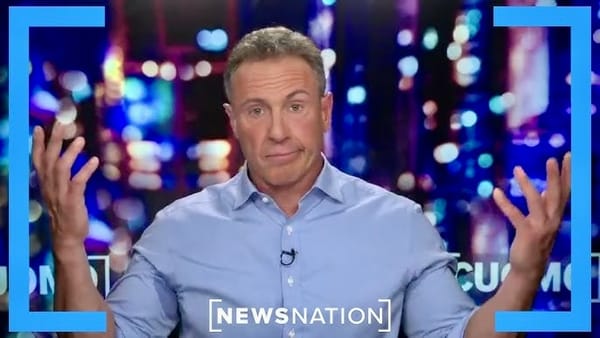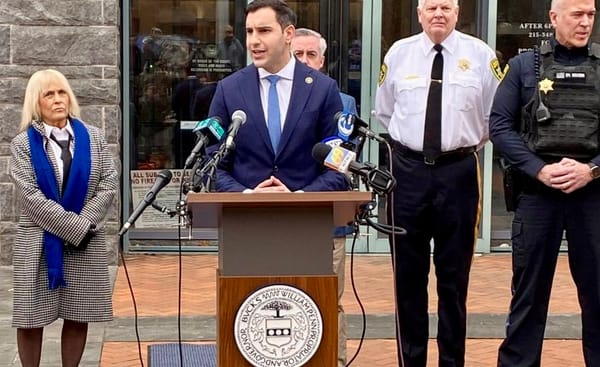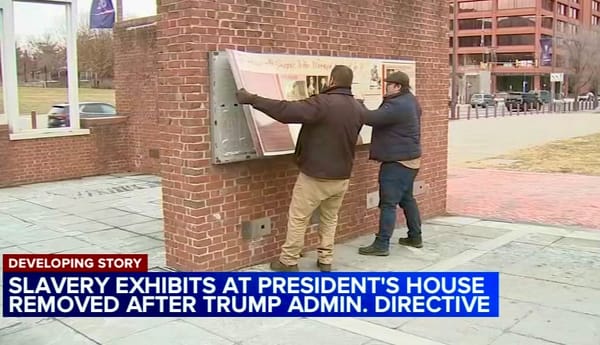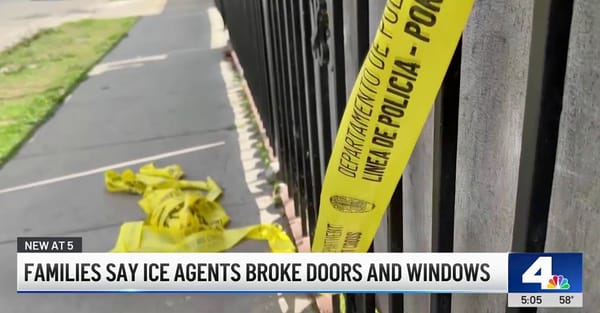No whitewash of Frank Rizzo
“It was his generosity to his friends that helped earn him immense loyalty from his supporters, whites and Blacks.” — Acel Moore
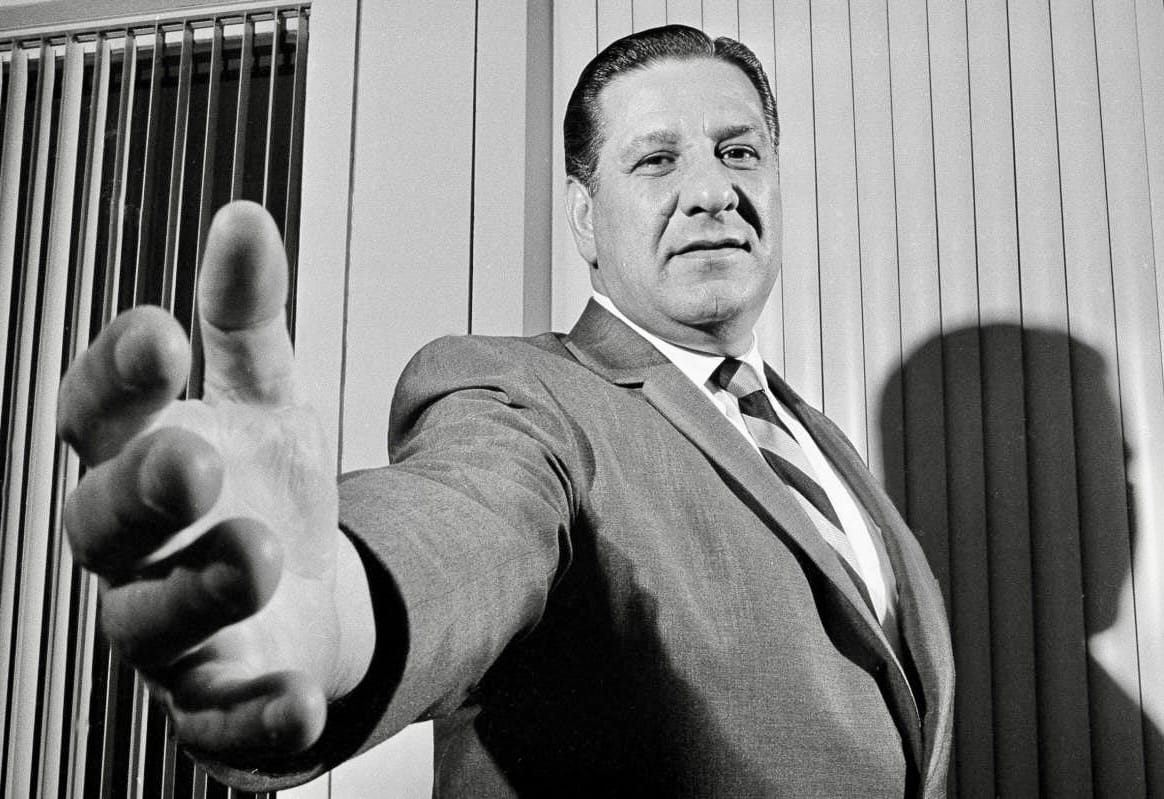
A common complaint against Frank Rizzo was that he was a racist, very often made by people who did not know him, or did not live here during his reign as police commissioner or mayor.
On August 23, 2017, for the Daily News and Inquirer, I wrote this column that examined, in their own words, how five nonwhite local journalists viewed him — four Black, one Latina.
I will have additional comments at the end.
—
That a debate rages about Frank Rizzo a quarter-century after his death speaks to the monumental imprint he left on this city.
The conventional wisdom is that ethnic whites loved him and Blacks hated him, but that's a simplification.
In the days after his death in July 1991, the Big Bambino was the subject of assessments written by columnists of color, including Claude Lewis, Acel Moore, and Chuck Stone, all of whom were among the founders of the National Association of Black Journalists in 1975. Their views of Rizzo were not black and white, and certainly no whitewash.
Here are excerpts:
The Inquirer's Acel Moore, who died last year (column of 7/18/91):
"I don't argue that he was compassionate and giving to those who supported him — often to the detriment of the overall public good. It was his generosity to his friends that helped earn him immense loyalty from his supporters, whites and Blacks. I even do not argue with those who say that Rizzo had changed on the racial question….
"But in recognizing the change that had come over Rizzo, it must also be recognized that the political landscape also had changed since he left office in 1979."
The Daily News' Alba Martinez (column of 7/25/91):
"Frank Rizzo's death broke the hearts of some Puerto Ricans who had supported him for decades — those who say that as mayor, Rizzo did more for Latinos in Philadelphia than all other mayors combined….
"Relations between Rizzo and many Puerto Rican activists in the 1970s were stormy, in part because of the widely held opinion that Rizzo condoned excessive force by police."
The Daily News' Linda Wright Moore (column of 7/18/91):
"From afar, I had a totally negative view of Rizzo — as a billy-club-in-cummerbund bully who presided over a police department in which brutality was standard procedure. Frank Rizzo and his tough-cop image were synonymous with this town — and its reputation as a rough racist place for black folks….
"Just before his death, he met with two Black ministers. Frank Rizzo could count. He understood the political reality that a 'whites only' campaign would add up to defeat in the '90s. So he was reaching out ….
"That late-blooming will to change and to embrace those he had spurned is a proper epitaph for Frank Rizzo."
The Inquirer's Claude Lewis, who died last March (column of 7/22/91)
"More than anyone else, he polarized people. No matter how much he mellowed, his early years were so incendiary there was no way he could overcome his past….
"He didn't know it, but I possessed a secret pride in him because he had come a long way, and beneath his hard exterior he was a soft man who tried to hide his shortcomings beneath a cover of arrogance and overconfidence."
The last word goes to the Daily News' Chuck Stone, my longtime friend and colleague, who died in 2014 (column of 7/17/91):
"As of 1987, Frank Rizzo successively had acquired three faces — the law-and-order, racist-tainted, police-brutality-defending face of 1971; the 'come, let us reason together' face of 1975 supported by over 50 Black clergymen and 32% of the Black vote; and, finally, the 'vote white' face of 1978….
"Was Frank Rizzo a racist? Most Black Philadelphians unequivocally believed so. But if you were Black and an ally, he would move tons of earth to help you and then dump them on a white opponent….
"He had changed because he knew the city and the nation had changed….
"[I]f Black Alabamians could forgive George Wallace's history of national segregation with 80% of their vote, why couldn't Black Philadelphians forgive Frank Rizzo?"
None of these columnists was even remotely a Rizzo supporter.
Of the five, the harshest assessment came from Claude Lewis, who was soft-spoken, an exceptionally gentle man, a man who generally believed in redemption.
Acel Moore, who had won a Pulitzer Prize as a reporter, allowed for redemption, but suggested it was motivated by political necessity. His wife, Linda Wright Moore, acknowledged political reality but was a little more generous.
Martinez, a former executive director of Congreso de Latinos Unidos, clearly felt less warmth about Rizzo than did other Hispanics.
Finally, the fiery Chuck Stone acknowledged Rizzo's love of this city while revealing the Three Faces of Frank. He asked why Black Philadelphians couldn't forgive Frank. But he never asked them to do so.
—-
Even allowing for the courtesy usually extended to the deceased, none said Rizzo was a racist at the end. Not one documented an actual racist act. Did he use the N-word? He did, not surprising for a man of his generation, given where and when he was born. Did he have Black friends? Also yes.
The general view in the local print media was that Rizzo was a brute, and, as the Black people who knew and liked him died off, the remaining testimony is the yellowing clips of stories, editorials, and columns, written by his critics.
Among Rizzo’s Black fans were civil rights activist Novella Williams, former heavyweight champ Joe Frazier, legendary radio host Mary Mason, plus his bodyguards Tony Fulwood and Jim Turner. Would they have befriended a racist?
Was the Philadelphia Police Department brutal under Rizzo as police commissioner, and was he too-forgiving of police misconduct as mayor? Yes.
Was the violence directed solely against Blacks?
Absolutely not, according to Bill Marimow, who won two Pulitzer Prizes for Philadelphia Inquirer exposes on police misconduct. The cops’ victims had two things in common, Marimow told me — low education, low income. Not race.
For the record, cops were violent before, during, and after Rizzo.
Let me close with two observations, about seeming racism.
First, Rizzo did say “vote white” in 1978, as Chuck Stone mentioned. This was Rizzo’s retort to the then-hot Black Power movement, in which leaders were saying, "Vote Black.” It was knee-jerk, and poor politics.
Second, importantly, despite widespread erroneous belief, Rizzo was NOT present at the infamous confrontation between Philly cops and Black Panthers, who were stripped while standing on a North Philly sidewalk.
The famous picture was taken by Daily News photographer Elwood P. Smith who told me Rizzo was NOT present. Many people conflate the famous nightclub-in-cummerbund Rizzo picture with the Black Panthers. They were two separate events.
